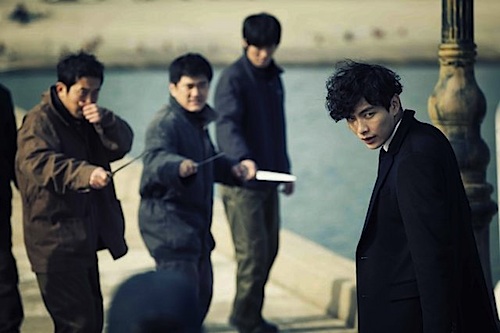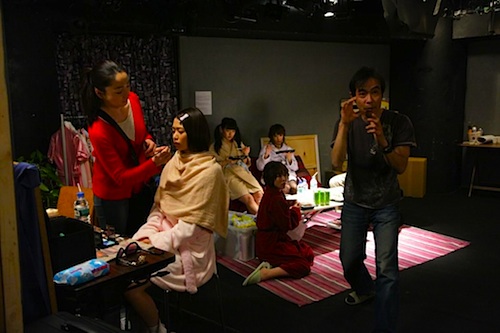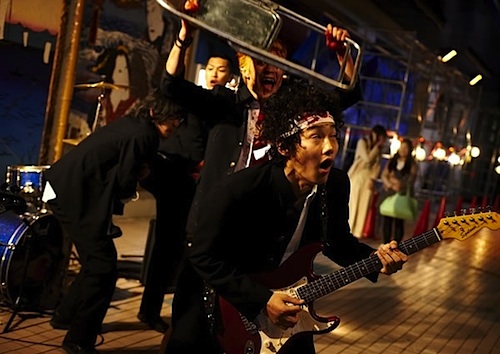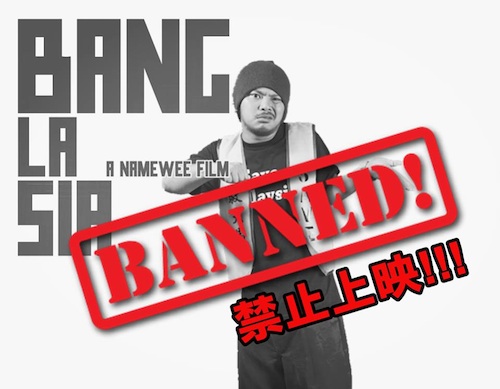By Joe Bendel. Lee Hwan will confirm all your suspicions about closers who choke in the ninth inning. He really was taking payoffs from gamblers. Once the scandal broke, the only work he can find is with the loan-sharking gangsters whom his accomplice owed big time. It turns out the kid can throw a punch as well as he can hurl a baseball (he never really had any control problems, mind you). However, when the outfit known as Emperor Capital expands into waterfront real estate, the double-crosses start coming like Mariano fastball-cutters in Park Sang-jun’s For the Emperor, which releases this week on Blu-ray, DVD, and digital platforms from Well Go USA.
Lee Hwan happened to be picking up his take from his latest blown save in a seedy gambling den right when the cops raided it. Although he was let off with a wrist-slapping, he reputation is shot. He also forfeited a large bag of illicit cash. To pay off a debt he inherited from his front-man, Lee Hwan collects from a hard-headed has-been gangster for Jung Sang-ha, Emperor Capital’s CEO. As we know from the fantastically violent prologue, Lee Hwan has a knack for this kind of work.
A one-off quickly turns into a full time gig for Lee Hwan, with his tenacious street-fighting chops and knowledge of sports betting propelling him up the ladder. Soon, he secretly takes up with Madame Cha, the hostess of the Emperor’s private club, who is up to her eye-lashes in debt to the group. Jung is not exactly thrilled with their relationship and his lieutenants are even less enthusiastic about all the slack he cuts Lee Hwan. However, the former jock is in over his head trying to navigate the schemes Jung and Han-deuk, the sinister chairman are hatching between them.

There is also a whole lot of knife fighting. We are talking mega-gritty, super-bloody street brawling and some of the best tenement hallway melees since the original The Raid. For action fans, these extended sequences are like watching ballet, but for the squeamish, they could cause blackouts and short-term memory loss.
Lee Min-ki (who finished work on Emperor six months before commencing his mandatory military service) brings an erratic, slightly unstable sensibility to Lee Hwan that works well in context. He also generates some heat with the otherwise ice cold Lee Tae-im in sex scenes that are unusually steamy for mainstream Korean cinema. However, character actor Park Sung-woong (Tabloid Truth, Man on High Heels, etc.) just towers over the film as the smooth but ruthless Jung.
Granted, For the Emperor does not have the sweep of Nameless Gangster or New World, but it has hundreds of thugs getting hacked and slashed. The character of Jung also offers a few interesting wrinkles to distinguish him from the pack. Regardless, the action is most definitely the reason to see Emperor. Recommended for genre fans with all due meathead approval, For the Emperor is now available for home viewing from Well Go USA.
LFM GRADE: B
Posted on July 10th, 2015 at 3:57pm.






